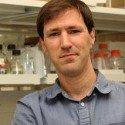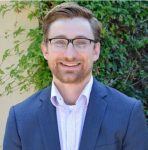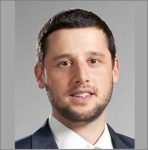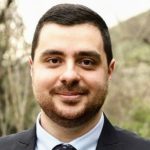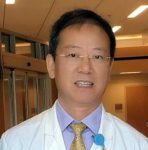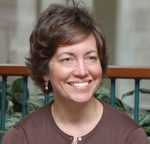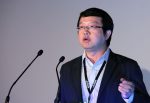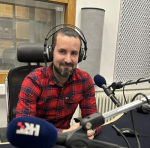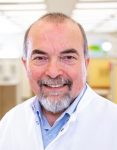Dr. Daniel H. Rich, Emeritus Ralph F. Hirschmann Professor of Medicinal And Organic Chemistry at the University of Wisconsin-Madison has been named as the 2017 recipient of the Meienhofer Award for Excellence in Peptide Sciences. The award will be presented to Dr. Rich on September 27, 2017 at the Boulder Peptide Symposium, which will take place from September 25 to 28, 2017 in Boulder, Colorado, where Dr. Rich will give a presentation of highlights from his prodigious record of research achievements.
We would like to invite you to register for the meeting to hear Dr. Rich's presentation. Those interested in presenting at the meeting may apply to present online at the www.boulderpeptide.org.
About Professor Daniel H. Rich
Dr. Daniel H. Rich, Emeritus Ralph F. Hirschmann Professor of Medicinal And Organic Chemistry at the University of Wisconsin-Madison was a General Motors Scholar at the University of Minnesota-Minneapolis from 1960-64 where he received the B. Chemistry degree in 1964. He received his Ph. D. in organic chemistry from Cornell University and held postdoctoral appointments with Vincent du Vigneaud and W. S. Johnson (Stanford) before joining the Faculty in Pharmacy at the University of Wisconsin-Madison in 1970. His research focused on the synthesis and conformational analysis of cyclic peptides, and the design and synthesis of inhibitors of therapeutically important enzymes, especially aspartic proteases. His work in the aspartic protease field laid the ground-work for the development of the HIV protease inhibitors used to treat AIDS. He published over 250 articles and trained 36 PhD students and another 100 postdoctoral students; many of his students rose to important research positions in the pharmaceutical industry.
His research accomplishments have been recognized by the 1990 Vincent du Vigneaud Award in Peptide Chemistry, the 1992 ACS Division of Medicinal Chemistry Award, the 1992 Research Achievement Award of the American Association of Pharmaceutical Scientists, the 1992 George Herbert Hitchings Award for Innovative Methods in the Design and Discovery of Drugs, the 1993 ACS Ralph F. Hirschmann Award in Peptide Chemistry, a WARF University Professorship at UW-Madison in 1994 (which he named after Ralph F. Hirschmann), the E. Volwiler Research Achievement Award from the Amer. Assoc. Colleges Pharmacy in 1995, an Arthur C. Cope Scholar Award from the American Chemical Society in 1999 and the R. Bruce Merrifield Award from the American Peptide Society in 1999, and the E. E. Smissman Award from the ACS Division of Medicinal Chemistry in 2005. In 1993, he was a Senior U.S. Scientist Alexander von Humboldt Scholar in Germany. In 2004, he was awarded an Outstanding Alumni Achievement Award from his alma mater, the Institute of Technology of the University of Minnesota and in 2007 was placed on the ACS Medicinal Chemistry Hall of Fame.
Professor Rich was elected Teacher of the Year by the UW-Madison Pharmacy graduating class of 1986 for his teaching of Medicinal Chemistry. From 1989 till his retirement in 2006 he lectured each year at the Drew University Residence School in Medicinal Chemistry on the design of enzyme inhibitors and peptidomimetics. In addition, Professor Rich has presented short courses in Medicinal Chemistry to pharmaceutical societies in Sweden, England, Japan and other foreign countries. He presented about 20 invited lectures each year, nationally and internationally. Professor Rich also served as a consultant in drug-design and discovery, especially in the area of design of protease inhibitors, for many major pharmaceutical companies.
Professor Rich served in administrative roles at UW-Madison. From 1976-1980 he was Assistant Dean of Graduate Studies in the School of Pharmacy. He served as elected member of the Physical Sciences Divisional Committee for UW-Madison from 1991-1993 and chaired the committee in 1992-1993. He was appointed to the UW-Madison Graduate School Research Committee (Biology Division) from 1994 to 1997. He also served as a member of the honorary degrees committee for UW-Madison from 1995-1998. He organized and wrote the first Chemistry-Biology Interface training grant for UW-Madison in 1992 and served as its program director, principle investigator and chair of the advisory committee from 1993-2003; the UW-Madison CBI training program remains the largest of its type in the United States. From 2005-2006, he was Associate Dean for Research and Graduate Studies for the School of Pharmacy.
At the national level, Professor Rich was President of the American Peptide Symposium from 1979-1981, a member of the Bioorganic and Natural Products study section for NIH from 1981-1985 and Chairman of that study section from 1983-1985, a Fellow of the American Association for the Advancement of Science since 1986, and a council member for the American Peptide Society. He was Associate Editor for the Journal of Medicinal Chemistry from 1988-1992, and was Associate Editor of the ACS journal, Organic Letters, from 1999 through 2005.
Professor Rich was active within the Medicinal Chemistry Division of the American Chemical Society. He was Chairman for the Division of Medicinal Chemistry in 1992, served as a member of the Planning Committee, organized two Symposia for the Division, and was an Academic Councilor for the division. He organized the 29th National Medicinal Chemistry Symposium held June 27-July 2, 2004 in Madison WI.
More information on the Meienhofer Award, including a list of previous recipients, and the Boulder Peptide Symposium can be found online at www.boulderpeptide.org.


